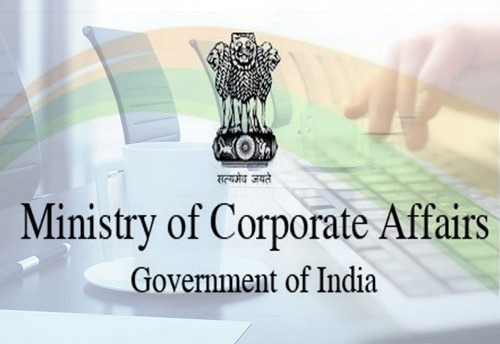Alok Singh, J.@mdashThis is an application seeking regular bail in case FIR No. 25 dated 23.12.2010 under Sections 7, 13(2) of the Prevention of Corruption Act, 1988, P.S. Vigilance Bureau, Amritsar.
2. Petitioner was arrested on 23.12.2010 and was produced before the Magistrate. He was sent to judicial custody on 24.12.2010.
3. Application seeking bail was moved before the Chief Judicial Magistrate on 24.2.2011 stating that no challan has been submitted by the police within 60 days as required u/s 167(2)(ii) Code of Criminal Procedurer. Therefore, the Petitioner is entitled to be enlarged on bail. The application was withdrawn on 24.2.2011 and thereafter, it was moved before the Special Judge/Addl. Sessions, Amritsar on 24.2.2011. Bail application was dismissed by the Special Judge having observed that bail application as well as challan were submitted before him on the same date i.e. 24.2.2011 and thus, it is not clear as to whether the application was filed earlier in time or challan was submitted earlier in time.
4. Learned Counsel for the Petitioner has vehemently argued that as per the prosecution story, Petitioner was working as Patwari and demanded Rs. 50,000/- to issue the extract of Jamabandi to the complainant. Learned Counsel for the Petitioner states that certified copy of the Jamabandi can always be obtained from the Tehsil and it is highly improbable that the complainant has demanded Rs. 50,000/- to issue extract of the Jamabandi. He further states that as per Sub-clause (ii) of proviso (a) to Section 167(2) Code of Criminal Procedure in the present matter, challan should have been filed within 60 days from the date of custody i.e. from 24.12.2010. Learned Counsel for the Petitioner has further argued that 60 days time in the present case would expire on 23.2.2011.
5. Having placed reliance on the judgment of the Apex Court in the matter of
6. The Apex Court in the matter of Uday Mohan Acharya (supra) has observed as under:
we would record our conclusions as follows:
1. Under Sub-section (2) of Section 167, a Magistrate before whom an accused is produced while the police is investigating into the offence can authorise detention of the accused in such custody as the Magistrate thinks fit for a term not exceeding 15 days in the whole.
2. Under the proviso to aforesaid Sub-section (2) of Section 167, the Magistrate may authorise detention of the accused otherwise than the custody of police for a total period not exceeding 90 days where the investigation relates to offence punishable with death, imprisonment for life or imprisonment for a term of not less than 10 years, and 60 days where the investigation relates to any other offence.
3. On the expiry of the said period of 90 days or 60 days, as the case may be, an indefeasible right accrues in favour of the accused for being released on bail on account of default by the Investigating Agency in the completion of the investigation within the period prescribed and the accused is entitled to be released on bail, if he is prepared to an furnish the bail, as directed by the Magistrate. When an application for bail is filed by an accused for enforcement of his indefeasible right alleged to have been accrued in his favour on account of default on the part of the Investigating Agency in completion of the investigation within the specified period, the Magistrate/Court must dispose it of forth with, on being satisfied that in fact the accused has been in custody for the period of 90 days or 60 days, as specified and no charge-sheet has been filed by the Investigating Agency. Such prompt action on the part of the Magistrate/Court will not enable the prosecution to frustrate the object of the Act and the legislative mandate of an accused being released on bail on account of the default on the part of the Investigating Agency in completing the investigation within the period stipulated.
5. If the accused is unable to furnish bail, as directed by the Magistrate, then the conjoint reading of Explanation I and proviso to Sub-Section 2 of Section 167, the continued custody of the accused even beyond the specified period in paragraph (a) will not be unauthorised, and therefore, if during that period the investigation is complete and charge-sheet is filed then the so-called indefeasible right of the accused would stand extinguished.
6. The expression ''if not already availed of used by this Court in Sanjay Dutt''s case (supra) must be understood to mean when the accused files an application and is prepared to offer bail on being directed. In other words, on expiry of the period specified in paragraph (a) of proviso to Sub-section (2) of Section 167 if the accused files an application for bail and offers also to furnish the bail, on being directed, then it has to be held that the accused has availed of his indefeasible right even though the Court has not considered the said application and has not indicated the terms and conditions of bail, and the accused has not furnished the same.
With the aforesaid interpretation of the expression ''availed of'' if charge-sheet is filed subsequent to the availing of the indefeasible right by the accused then that right would not stand frustrated or extinguished, necessarily therefore, if an accused entitled to be released on bail by application of the proviso to Sub-section (2) of Section 167, makes the application before the Magistrate, but the Magistrate erroneously refuses the same and rejects the application and then accused moves the higher forum and while the matter remains pending before the higher forum for consideration a charge-sheet is field, the so-called indefeasible right of the accused would not stand extinguished thereby, and on the other hand, the accused has to be released on bail. Such an accused, who thus is entitled to be released on bail in enforcement of his indefeasible right will, however, have to be produced before the Magistrate on a charge-sheet being filed in accordance with Section 209 and the Magistrate must deal with him in the matter of remand to custody subject to the provisions of the Code relating to bail and subject to the provisions of cancellation of bail, already granted in accordance with law laid down by this Court in the case of Mohd. Iqbal v. State of Maharashtra (supra).
7. From the dictum of the Apex Court in the case of Uday Mohan Acharya (supra), it is thus clear, if accused moves an application for bail soon after the expiry of stipulated period of 60 days or 90 days, as the case may be, he shall be released on bail irrespective of the fact challan is submitted by the police after the expiry of stipulated period of 60 days or 90 days, as the case may be.
8. In the present case, accused was arrested on 23.12.2010 and was sent to judicial custody on 24.12.2010. Offences u/s 7, 13(2) of Prevention of Corruption Act are not punishable for minimum period of 10 years imprisonment, therefore, challan u/s 173 Code of Criminal Procedure was to be filed within 60 days as provided under proviso (a)(ii) of Section 167(2) Code of Criminal Procedure., which stood expired on 22.2.2011 even if first day i.e. 24.12.2010 is excluded for counting of clear 60 days in view of my judgment dated 9.2.2011 in the case of Ram Kishore @ Banti v. State of Haryana, Crl. Misc. No. M-37622 of 2010. In the case of Ram Kishore (supra), I have held as under:
Now, question arises as to how stipulated period of 90 days or 60 days, as the case may be, counted?
Undisputedly, Petitioner was produced before the learned Magistrate on 31.08.2010, while he was arrested by the police on 30.08.2010. As per the dictum of the Apex Court in the matter of
Now, period of 90 days in the present case has to be computed from the date of the order of the Magistrate. Now, question comes as to whether the day of the order of the Magistrate shall be excluded for the purpose of computing the period or shall be included.
In the opinion of this Court, accused shall be detained for clear 90 days in an offence punishable with death, life imprisonment and for the offence punishable for not less than 10 years and shall be released on bail after expiry of 90 days on 91st day if challan is not filed within stipulated time. Meaning thereby, clear 90 days or 60 days detention is permissible under Clause (i) and (ii) of the proviso to Section 167(2) of the Code.
In the opinion of this Court, the date of remand must be excluded for the purpose of counting of clear 90 days because next day will start in the midnight of the day when custody is ordered. Since in the present case, custody was directed on 31.08.2010, hence period of 90 days would commence in the intervening night of 31st August and 1st September, 2010. Meaning thereby, first day would be 1st of September, 2010. If clear 90 days are counted from 01.09.2010 then 29.11.2010 would be the last day to submit the challan, it will come to an end in the intervening night on 29.11.2010 and 30.11.2011. Meaning thereby, police was well within its jurisdiction to submit the challan on or before the intervening night on 29.11.2010 and 30.11.2010.
9. Moreover, demand of Rs. 50,000/- to supply extract of Jamabandi seems to be improbable in view of the fact that complainant could have got certified copy of the Jamabandi from the Tehsil.
10. Hon''ble Apex Court in the case of State of Kerala v. Raneef 2011 (1) RCR (Cri) 381, has held that while considering the bail application, Court must bear in mind that in the event of refusal of bail, time spent in jail can not be restored to the accused, if accused is acquitted ultimately.
11. I direct that Petitioner be released on bail to the satisfaction of the trial Court.
12. Petition stands allowed.

